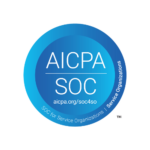Determining your healthcare development strategy can be complex and challenging, and it’s therefore vital to establish a process in order to improve the quality and efficiency of your interactions with a prospect. Every week, we’ll cover a new phase in our program to becoming a top producer in healthcare philanthropy.
Our key steps refer to the process development officers go through when interacting with each prospect. These steps are intended to be used as a guide to improve the quality and efficiency of every interaction with a prospect or donor. While some may move more quickly or slowly than others, all prospects go through each of the steps in the process. By being prepared and utilizing these steps, development officers can effectively reduce any tension between the officer and the prospect, sharpen communication skills, and generate a sense of professionalism and confidence. In the following blog series, Tips to Becoming a Top Producer in Healthcare Philanthropy, we will touch briefly on each of the key stages in the Gobel Group program, including pre-visit checklists and suggestions for talking points during each interaction, in order to assist development officers in aligning their prospects to the next stage, every time.
#7: Making the Ask
At this stage, you will have prepared your prospect well enough to make an ask. In order to prepare yourself for the meeting, ensure you have addressed your pre-visit checklist (see the Resources section below). If everything is in place, the question becomes not whether you will make an ask, but for how much you will be asking.
When making the ask, it’s a good idea to reaffirm what you have learned about the prospect and his or her interests through the previous visits and thank the prospect for considering a gift. It is also important that you have a variety of materials on-hand in case the prospect should require any additional information before making a gift.
In the Sample Toolkit example below (Making the Ask), you will note that the suggested ask was for $100,000. While your prospect may not be shocked that you are making the ask, they may be a little surprised by the amount, and it’s likely you will receive one of three responses:
- “This sounds interesting. Let me talk to my family and get back to you.” If this is the case, you will need to schedule one or two more meetings with your prospect in order to close the gift.
- “That sounds great. Let’s do it.” If you hear this response, congratulations! You are right on track to close a major gift.
- “I’d really like to help, but I don’t have a lot of money these days,” or “This is not the best time for me.” Just as you did during the soft ask, inquire whether, if the prospect did have the money to make the gift, this project is something they would be interested in funding. Ordinarily, you will receive an affirmative response; in which case, ask your prospect what things are holding them back from making a gift and then, after they’ve responded, ask them, “If I could find a way for you to honor Dr. Smith while not infringing on these other responsibilities, would you consider making a gift?”
- If the answer is no, ask for an annual gift and move on.
- If the answer is yes, you’re one step closer to closing the gift.
After you’ve determined your prospect’s likelihood of supporting their area of interest, you will want to explore their ability to make the gift over a period of time, perhaps spreading payments equally over five or more years. If your prospect determines they cannot put the amount of cash into the gift, explore the possibility of moving part of the gift into a bequest or other estate vehicle. Perhaps an annuity of trust is a more attractive option. (If this outcome is likely, you might consider bringing an expert from your gift planning office with you to the meeting.)
Finally, if it appears that the prospect is not going to make a major gift during the meeting, you can always either 1) ask for a leadership-level unrestricted outright gift or multi-year pledge; 2) ask for a leadership-level restricted outright gift or multi-year pledge; or 3) defer any ask and wait for a better time to renew the discussion. While the first option is preferable, it’s important to keep your prospect’s needs and comfort level in mind during this stage of the discussion, and to adjust your approach accordingly.
Want to know more about becoming a top producer in healthcare philanthropy? Click here to read about the next stage, Closing the Gift, or click here to read the previous stage, Cultivating to Articulate the Case for Support.
